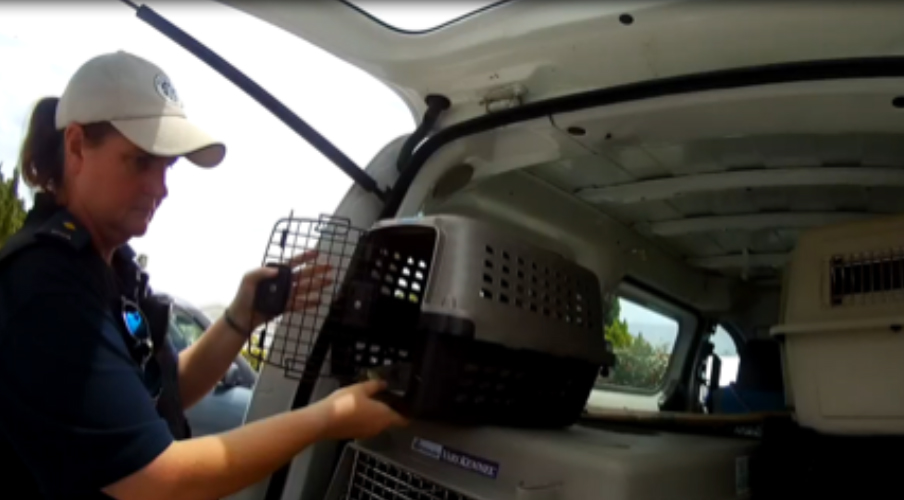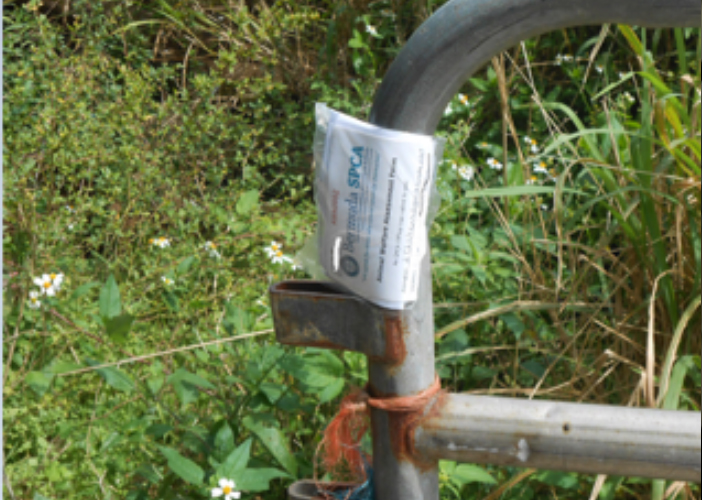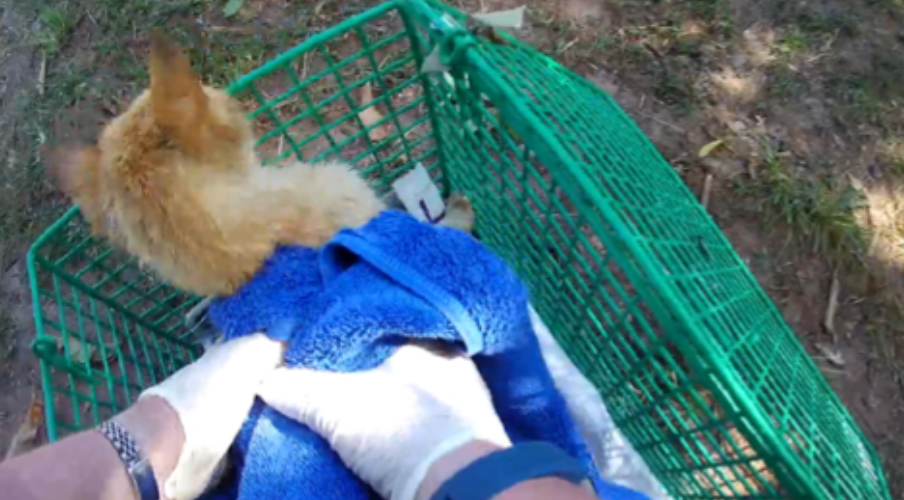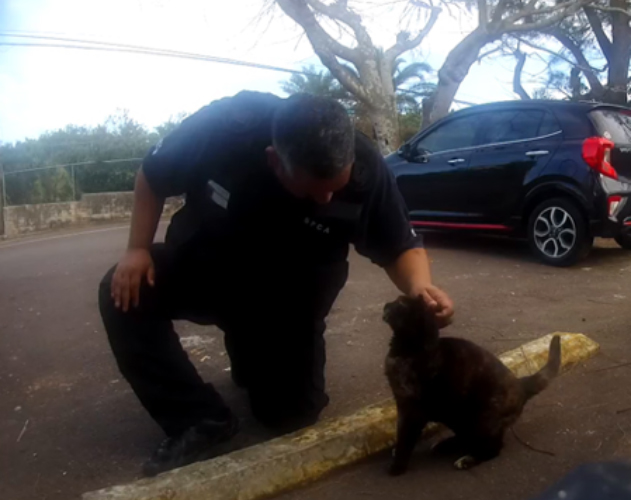SPCA Inspectors attending cruelty investigations and exercising legal powers on behalf of the Society will always:
- Be in uniform, which normally includes shoulder SPCA insignia (epaulettes).
- Carry SPCA Photo ID.
- Can be ID verified by calling the SPCA shelter during office hours.
- In most cases, be wearing video recording equipment. This is there to ensure that information is handled accurately, and the rights of both the officers and persons being investigated are being respected. Video is stored securely and deleted at the point that we do not feel an offence has been, or is likely to be, committed.
- Abide by the provisions of the Police and Criminal Evidence Act in relation to the collection of evidence and the interviewing of suspects.

SPCA Inspectors are specifically named in legislation under the Care and Protection of Animals Act 1975.
We are in law allowed (without warrant or police assistance) to:
- Enter property (including a building or house) when we have reason to suspect an offence of cruelty has been committed.
- Remove an animal until able to determine that an offence has been committed, and retain the animal until the conclusion of legal proceedings or until such time it is decided to not proceed.
- Enter a vehicle to remove a dog suffering from heat exhaustion (Dogs Act).
Our inspectorate personnel are experienced and patient and in the majority of the cases we are able to gain entry with the consent of owners and do not need to exercise these powers. Equally, the majority of people we deal with, irrespective of the circumstances, are polite, cooperative and will allow us to check on their animals.
If the owners or keepers are not present when we visit we will leave either a courtesy card, a written animal assessment, or a warning notice if remedy needs to be made by you immediately. Please do not ignore these items as we will continue to seek the owner and failing to heed them may be significant in subsequent legal actions. If we receive no response to documents left we may also consider that animals have been abandoned and thus remove them.

Please be aware that you do not need to be the legal owner to be convicted of cruelty to an animal.
If we need to take a case to court:
The SPCA prosecutes privately and not via the DPP at present. The decision to prosecute is not taken lightly – not least because of the time and cost involved – and is usually in situations where:
- Our advice has not been followed and the problem has become worse.
- We are dealing with a repeat offender.
- The gravity of the offences concerned is so great that there is no prospect of resolving the issue by other means.
In considering the need to prosecute we take into account:
- The likelihood of a conviction.
- The available evidence.
- The public interest.
- The impact of the prosecution on both the accused and wider society.
- The circumstances of the accused including mental capacity and vulnerability.
Once the decision to prosecute has been made,
The SPCA will not release information or updates concerning animals as these could affect the successful outcome of a trial through compromising fairness and may place us at risk of being in contempt of court. The Society, in practise, tends to not share information prior to this stage for similar reasons. This may sometimes seem like we are uncaring or unaffected by what we deal with. Far from it – our role is to get an appropriate outcome where possible rather than vent our spleen! All trials are in open court and subsequent to a conviction, with the exception of the case of juveniles. The media may publicise a case, especially if a defendant is banned from keeping animals, in order that the community becomes aware of this and reports transgressions during the period of the ban.
We do not prosecute every case we investigate, nor necessarily in every case where the law has been broken. To do so would mean each of our officers would be tied up for more than 2/3rds of the year in case preparation or attending court or legal briefings, and unavailable to carry out other investigation and rescue work. Not to mention the legal costs involved. Equally, while a case is pending (which can take up to a year from the date of the offence), the animal(s) concerned cannot be rehomed.
Depending on the severity of the offence, nature of the offending history, and likelihood of recurrence, we may decide to:
- Take no further action if the owner surrenders the animal to us.
- Offer the owner the option to sign a legally binding civil contract to allow us to remove and keep any animal (sometimes restricted to certain species) they acquire for a set period after the offence – this has been used on a number of occasions since 2017. As well as avoiding the need for a lengthy trial, it can sometimes be a better guarantee of a ban and also avoids the need for an animal to remain in our care until the case is resolved.
The SPCA Inspectors could not do their job without the assistance of:
- Ettrick, Endsmeet, and Cedar Tree veterinarians who support our casework both on the cruelty aspect and the accident and emergency front. With special recognition for the work of Dr. Andrew Madeiros and the late and much missed Dr. Neil Burnie.
- The RSPCA in the UK and ISPCA in Ireland who have gone above and beyond to support our training needs.


